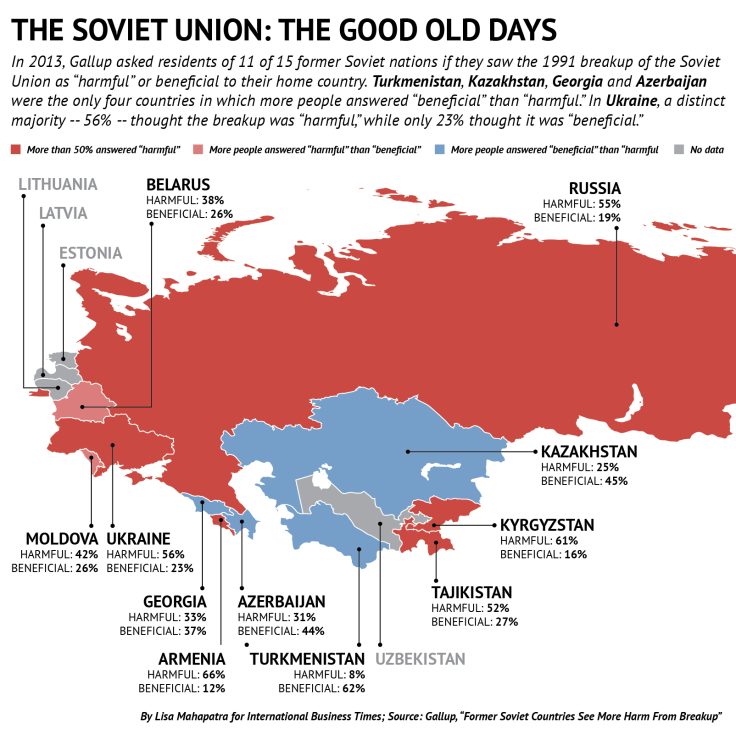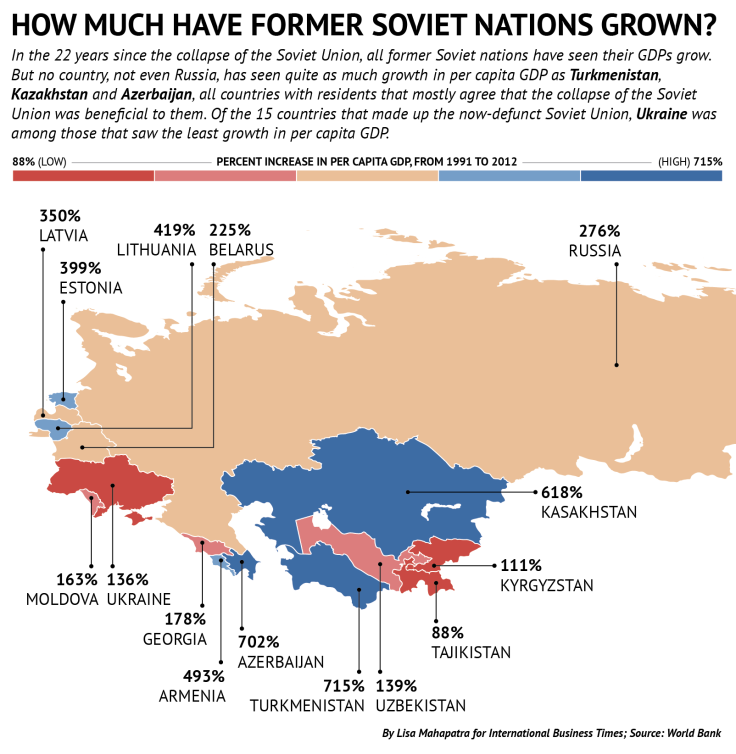Why A Russian Crimea Makes Sense: A Deeper Look At Soviet Attitudes [MAPS]
Despite threats of economic sanctions from Western Europe and the United States, the people of Crimea voted to secede from Ukraine to become a part of Russia on March 16, 2014. Here’s why that decision was actually quite predictable:
Last year, Gallup asked 11 of the 15 former Soviet nations how they felt the 1991 collapse of the Soviet Union affected them. 56 percent of all Ukrainians surveyed said that the collapse of the Soviet Union had a “harmful” effect on their country. Those who said the breakup was “beneficial” were a small minority -- just 23 percent.
Crimea, an autonomous republic of Ukraine, has a much higher percentage of ethnically Russian residents than the rest of the country. So it’s no surprise that Crimeans view Russia, former stronghold of the USSR, quite favorably.

From 1991, when the USSR collapsed, to 2012, the per capita GDP of the Ukrainian economy increased by 136 percent. That might sound like healthy level of growth, but it really isn’t.
With the exception of Kyrgyzstan and Tajikistan, every other former Soviet nation experienced a lot more per capita GDP growth than Ukraine did.
Russia, which had a much higher per capita GDP than Ukraine to begin with, grew 276 percent in those 21 years.
And Ukraine had a paltry per capita GDP before the dissolution -- which makes the 136 percent growth number look even more depressing.
Despite the threats of economic sanctions from the Western world, it still makes sense for Crimea to want to become a part of Russia, to benefit from its military protection and relatively more-stable economy.

© Copyright IBTimes 2024. All rights reserved.






















